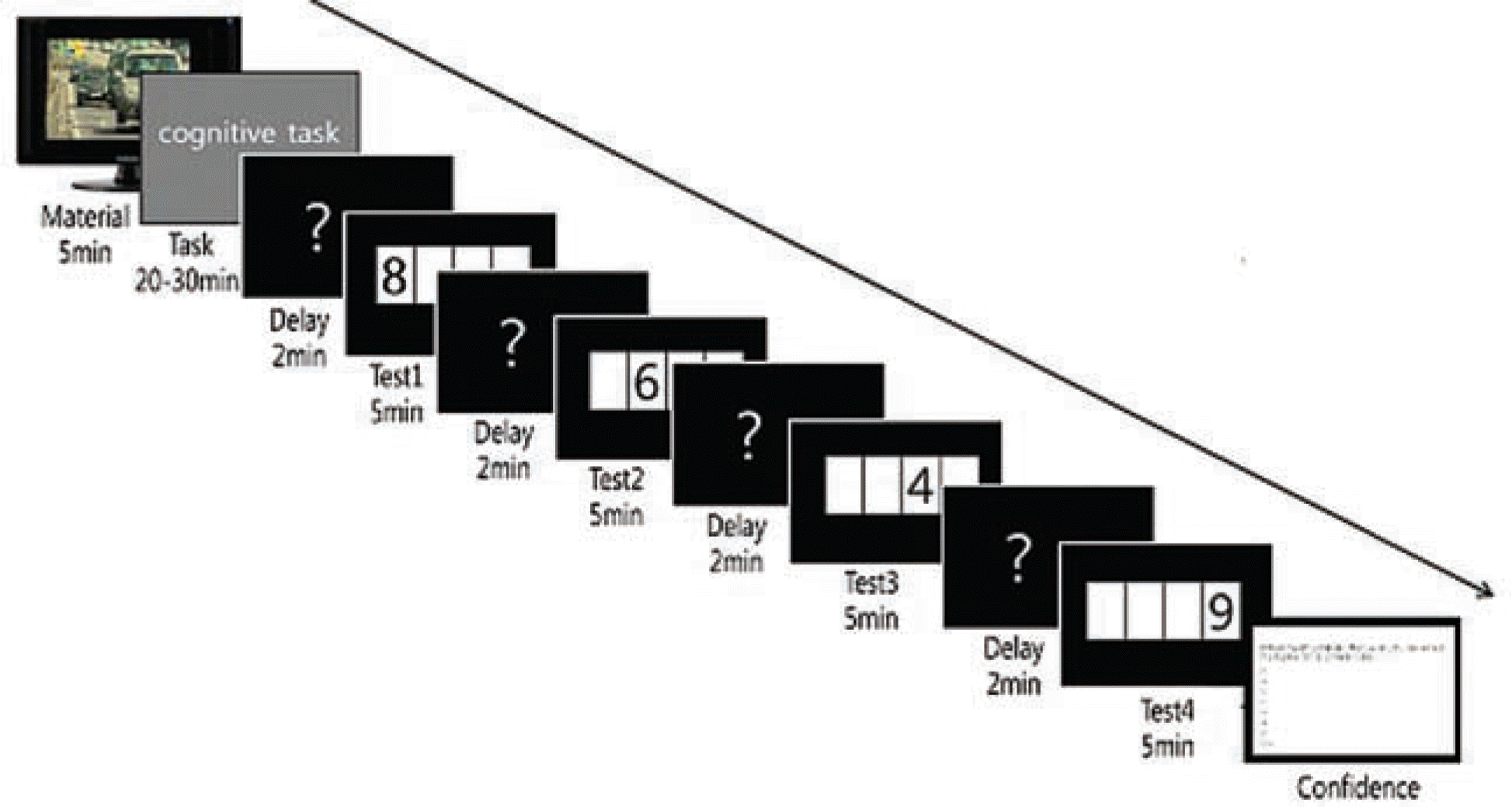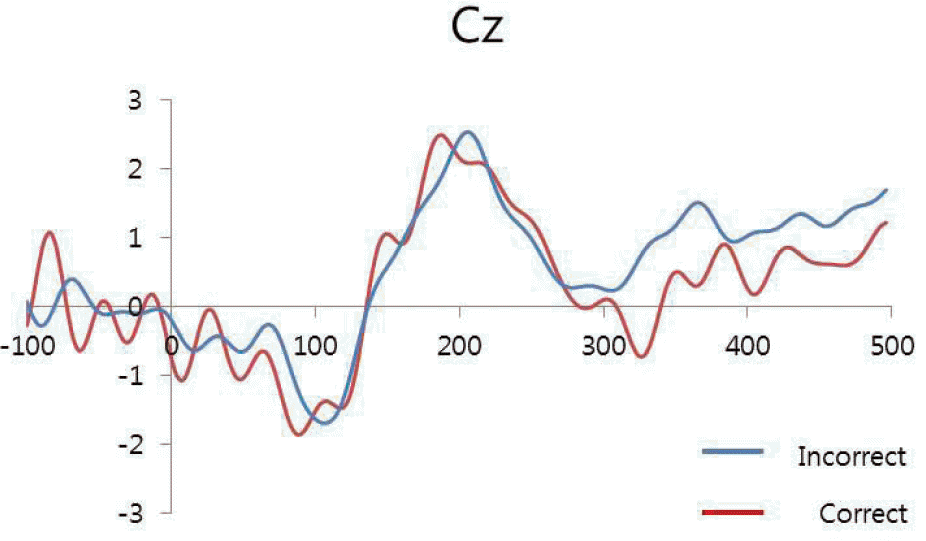Abstract
We investigated event-related potentials (ERPs) to estimate the accuracy of eyewitness memories. Participants watched videos of vehicles being driven dangerously, from an anti-impaired driving initiative. The four-letter license plates of the vehicles were the target stimuli. Random numbers were presented while participants attempted to identify the license plate letters, and electroencephalograms were recorded. There was a significant difference in activity 300-500 milliseconds after stimulus onset, between target stimuli and random numbers. This finding contributes to establishing an eyewitness recognition model where different ERP components may reflect more explicit memory that is dissociable from recollection.
REFERENCES
1. Dunn BR, Dunn DA, Languis M, et al. The relation of ERP components to complex memory processing. Brain Cogn. 1998; 36:355–76.

2. Cooper R. Distribution, origins and cognitive correlate of event related potentials. Sinz R, Rosenzweig MR, editors. Psychophysiology: memory, motivation and event-related potentials in mental operations. Amsterdam: Elsevier Biomedical Press;1977. p. 315–23.
3. Donchin E, Coles MG. Is the P300 component a manifestation of context updating? Behav Brain Sci. 1988; 11:357–74.

4. Mannel C, Bertow K, Tamm S, et al. Implicit recognition of painting style: ERP studies on art perception [Internet]. Gottiegen: Kongress der Deutschen Gesellschaft fur Psychologie;2004. [cited 2015 Oct 1]. Available from:. http://www.ewi-psy.fu-berlin.de/.
5. Bentin S. Event-related potentials, semantic processes, and expectancy factors in word recognition. Brain Lang. 1987; 31:308–27.

6. Kutas M, Hillyard SA. Reading senseless sentences: brain potentials reflect semantic incongruity. Science. 1980; 207:203–5.

7. Rugg MD. Event-related brain potentials dissociate repetition effects of high- and low-frequency words. Mem Cognit. 1990; 18:367–79.
8. Rugg MD, Mark RE, Walla P, et al. Dissociation of the neural correlates of implicit and explicit memory. Nature. 1998; 392:595–8.

9. Park TJ. Neurological dissociation of implicit and explicit memory by level of processing: an event-related potential study. Korean J Cogn Biol Psychol. 2003; 15:289–301.
10. Johnson R Jr. Auditory and visual P300s in temporal lobectomy patients: evidence for modality-dependent generators. Psychophysiology. 1989; 26:633–50.

11. Ko PC, Duda B, Hussey EP, et al. Electrophysiological distinctions between recognition memory with and without awareness. Neuropsychologia. 2013; 51:642–55.
12. Ham KS, Pyo CY, Ro SH. Study on the eyewitness event-related potential tendency in situations with visual imagery and auditory stimulation. Korean J Investig Psychol. 2014; 1:53–74.




 PDF
PDF ePub
ePub Citation
Citation Print
Print




 XML Download
XML Download